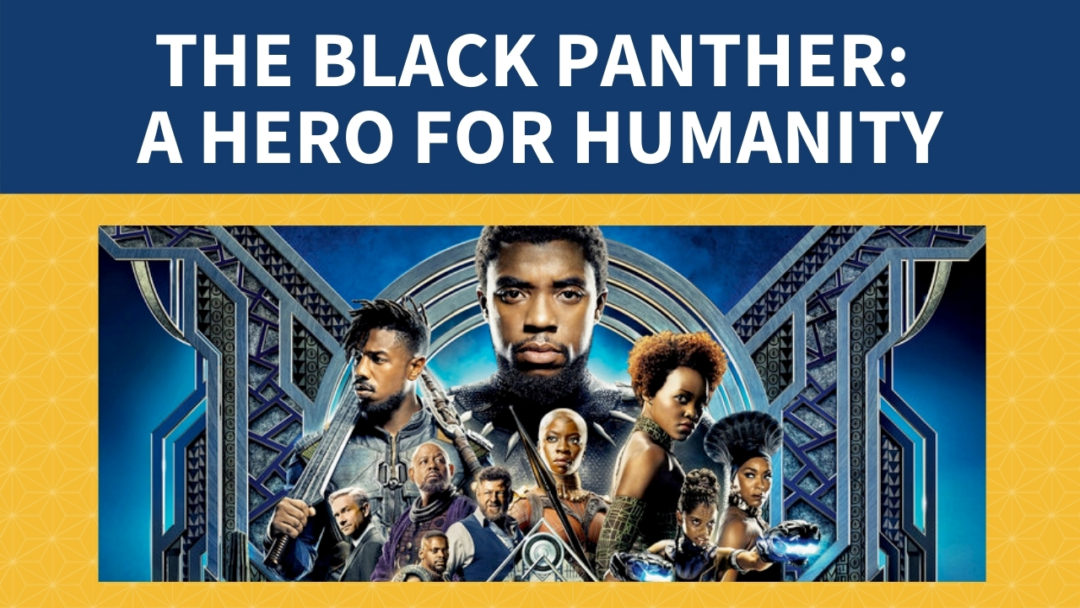The Black Panther, Marvel Studios new blockbuster movie, is the story of a black superhero, written and directed by a black man, Ryan Coogler, with a largely black cast. The overt African lineage is significant and a worthy cultural touchstone. But what is more significant is that these folks have made a movie for all people.
The Black Panther presents a vision of a hidden African land and culture, Wakanda, which harmonizes the spiral of human development — magic (magenta altitude), myth (amber altitude), hypermodernity (orange altitude) and world-centric political ideals (green altitude) — in a way that expresses a true integral sensibility. As Magnola Dargis writes in the New York Times:
“Part of the movie’s pleasure and its ethos … is how it dispenses with familiar either/or divides, including the binary opposition that tends to shape our discourse on race. Life in Wakanda is at once urban and rural, futuristic and traditional, technological and mystical. Spaceships zoom over soaring buildings with thatched tops; a hover train zips over a market with hanging woven baskets.”
This sense of integration is extended to the story as well, which illuminates the struggle of growing beyond a retributionist victim identity to a larger sense of responsibility for one’s self, one’s people, and the whole of the world. It’s a transmission of eros that as Jeff says, “left me giddy with uplift.”
In this episode, Jeff is the guest of Steven T Harper, on his podcast, “What’s Your Theory?”. Steve, a sci-fi author himself, (Kings X Saga) shares his abiding love for the genre, situates The Black Panther in the superhero pantheon, and shows how it is moving the evolutionary ball.
Podcast: Download
Subscribe: Google Podcasts | RSS






